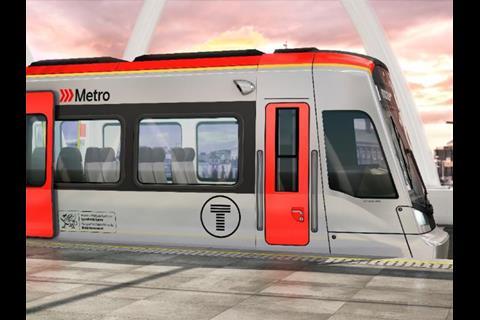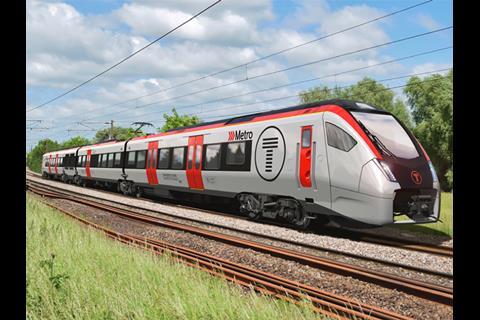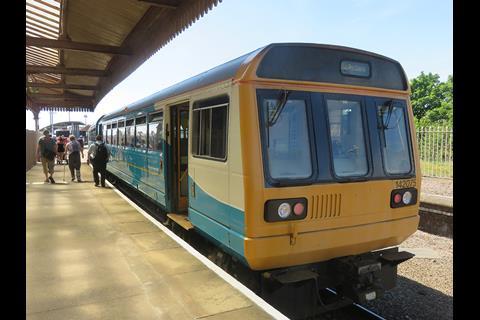UK: Investment of £1·8bn in three new train fleets, electrification of commuter routes radiating from Cardiff and station modernisation across the 1 623 route-km Wales & Borders network is envisaged under the 15-year Operations & Development Partner contract awarded to KeolisAmey by the Welsh government on June 4.
Described by First Minister Carwyn Jones as ‘not only important for rail, but also for Wales itself’, the contract to operate passenger services within Wales and regional routes into England runs until October 16 2033; KeolisAmey is scheduled to take over operations from incumbent Arriva Trains Wales on October 14, having been selected as preferred bidder on May 23. ‘We are at an historic point for the railway in Wales’, said Ken Skates, Cabinet Secretary for Economy & Transport. ‘For the first time a rail service has been procured and awarded in Wales, for Wales.’
Transport for Wales CEO James Price told Railway Gazette that the ODP contract was a cross between a traditional Department for Transport franchise and a more tightly controlled concession, as used in London and Merseyside; it had been designed to ‘remove artificial and commercial barriers’ to improvements that would benefit the travelling public.
The franchise currently carries 32·3 million passenger-journeys/year. The new contract will see a significant increase in the level of services provided, including a 22% increase in Sunday trains from December 2019. An ‘easier to understand and fairer’ fare structure is to be introduced in January 2020, to address historical anomalies.
TfW’s aim is for 95% of Wales & Borders journeys to be undertaken on new trains by 2023. The agency had initially planned to buy new rolling stock itself, but concluded that the low cost of private-sector financing would favour procurement by the ODP.
Carwyn Jones said the ‘dreaded’ Pacer DMUs which do not meet modern accessibility standards would be removed from service by the end of 2019. In the short term they are to be replaced by Bombardier Class 170 DMUs cascaded from Greater Anglia, Class 769 electro-diesel multiple-units produced from modernised Class 319 EMUs, and Class 230 D-Trains to be converted by Vivarail from ex-London Underground stock. Meanwhile, the locomotive-hauled inter-city service linking North and South Wales will be increased to three trains each way per day from December 2019, and operated using MkIV coaches displaced from the East Coast Main Line by new Hitachi trainsets.
KeolisAmey has selected CAF as preferred bidder to supply 51 two-car and 26 three-car Civity DMUs for use on regional routes from 2022. These are to be assembled at the factory which CAF is to open at Newport later this year.
In line with the government’s carbon reduction ambitions, the Core Valley Lines from Cardiff Queen Street to Treherbert, Aberdare, Methyr Tydfil, Coryton and Rhymney are to be operated using ‘100% electric traction, with the electricity sourced from 100% renewable sources’.
Stadler is to supply seven three-car and 17 four-car ‘trimode’ Flirt UK multiple-units capable of operation on diesel, 25 kV 50 Hz and battery power which will work the routes from Cardiff to Rhymney, Coryton, Penarth, Barry and the Vale of Glamorgan; these would operate on electric power north of Cardiff and diesel power to the south. Another 11 four-car Flirt DEMUs would also be used on South Wales Metro services.
Services from Cardiff to Merthyr Tydfil, Aberdare and Treherbert will be worked by a fleet of 36 three-car ‘metro-style’ Stadler Citylink trainsets equipped for 25 kV 50 Hz and battery power. These would be suitable for ‘train-tram’ operation, with a proof of concept pilot seeing the short branch from Cardiff Queen Street to Cardiff Bay extended on-street to Flourish.
Negotiations are underway for ownership of Network Rail infrastructure north of Cardiff Queen Street to be transferred to TfW from September 2019. These routes would continue to be maintained to NR standards, initially including provision for freight, and electrified at 25 kV 50 Hz. The Stadler trainsets’ onboard batteries will permit discontinuous electrification, avoiding the substantial costs and disruption associated with installing OLE in 56 locations with restricted clearances.
New stations are to be built in Cardiff at Loudoun Square, Crwys Road, Gabalfa and Flourish, while an extension of the Coryton line is planned to serve the proposed Velindre hospital.







